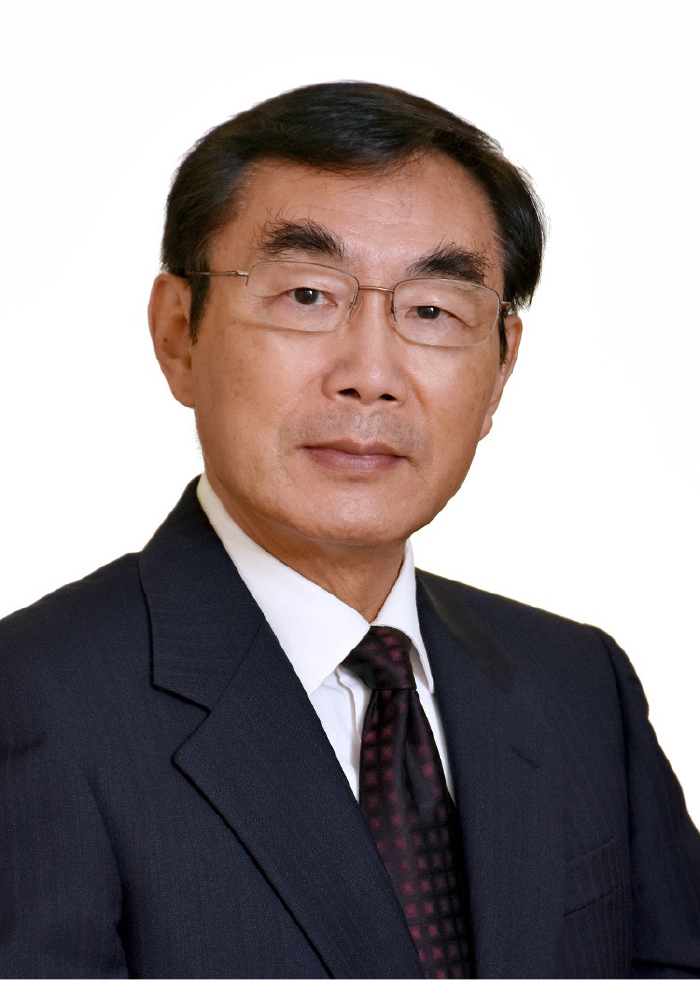Dr. Lee Chou is an accomplished scientist, entrepreneur and executive in biomedical engineering, world-leading expert in translational medicine, founder of the world’s largest institute of biomedical devices, and award-winning professor.
Dr. Chou is an elected Fellow of the Canadian Academy of Engineering.
He is considered a pioneer of many new technologies, including the theory of molecular biocompatibility, silicon-containing osteogenic materials, the first biomimetically designed scaffold and the first 3D printing machine for tissue engineering, the first Head & Neck PET/CT, and the first breath nano-sensor for the detection of lung and gastric cancer. Recipient of over 100 patents, his FDA, CFDA, and CE approved products have saved and improved the lives of millions of patients worldwide.
Today, his focus is on leading cross-disciplinary innovation and development in biomedical engineering as well as promoting global health philanthropy.
Pioneered the field of molecular biocompatibility
In 1995, Dr. Chou was the first to discover element- and topography-specific biogenetic reactions to inert biomaterials within live human cells. This breakthrough sparked the emergence of the molecular biocompatibility field. Dr. Chou’s proposal of building the biomaterials’ molecular biocompatibility profile is credited with catalyzing the development of third-generation biomaterials and played a key role in shaping the federal white paper “Materials Genome Initiative” issued by President Obama in 2011.
Read more
The first epitheliogenic biomaterials benefiting over 16 million patients worldwide
Dr. Chou’s groundbreaking research on Si/Ca-containing epitheliogenic materials paved the way for the creation of FDA-, CFDA-, or CE-approved wound-healing medications, protected by 56 patents. By February 2024, these medications have effectively treated 16,503,900 patients suffering from severe bedsores, donor-skin loss, deep burns, delayed-healing wounds, and diabetic foot ulcers. Additionally, Dr. Chou’s philanthropic efforts include the donation of 1,679,868 packaged products to regions in Africa and other developing nations, providing crucial aid to individuals with life-threatening wounds.
Read more
The first 3D printing device for tissue engineering and first biomimetically engineered scaffold benefiting over a hundred thousand patients
In 1998, Dr. Chou uncovered the osteogenic properties of inorganic silicon, along with its synergistic relationship with calcium. His pioneering work included the development of the world’s first 3-D printing method for tissue engineering in 1995. This breakthrough culminated in the creation of the first CFDA-approved biomimetically engineered osteogenic scaffold for treating severe bone defects. As of February 2024, this scaffold has facilitated bone regeneration in 142,750 patients, boasting nearly zero short- or long-term failure rates based on over 20 years of post-operative monitoring.
Read more
The first oral ulcer healing material helping over a million patients
Around 20% of the world’s population suffers from recurrent oral ulcers, a condition for which, prior to 2006, steroid use was the primary treatment option despite associated side effects. In 2006, Dr. Chou introduced the first silicon delivery patch, approved by FDA, CFDA, or CE, for faster healing of oral ulcers without relying on steroids. As of February 2024, 1,801,013 patients have benefited from this innovative product for managing recurrent oral ulcers.
Read more
The first head and neck PET/CT system for better diagnosis and treatment of cancer patients
In 2016, Dr. Chou and his team introduced the first Head and Neck PET-CT scanner, tailored for diagnosing and monitoring head and neck cancer. Their efforts yielded 55 patents, spanning the scanner’s distinctive signaling system and design, which achieves twice the resolution with 70 percent less radiation compared to existing full-body PET-CT scans. This design enables immediate assessment of surgical outcomes following tumor removal in the head and neck region. There is additional potential to address diagnostic gaps in Alzheimer’s disease and monitoring treatment progress. Clinical trials under CFDA approval are forthcoming for this scanner.
Read more
The first nano-sensor to detect early-stage lung and gastric cancer from a breath sample
Dr. Chou has led a team in developing a novel breath test nano-sensor device for the early detection of lung and gastric cancer. With 42 patents to its name, this technology detects trace biochemical markers of cancer cells, even before clinical symptoms appear. An initial clinical study, approved by the IRB and involving 545 patients with early-stage lung and gastric cancers, demonstrated 100 percent accuracy and sensitivity. A larger clinical trial is currently in progress. The device’s successful development could revolutionize cancer screening by offering a non-invasive method based on a simple breath sample.
Read more
